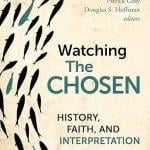Recently I was thumbing through an old book, Burden of Proof, by Charles Colson. It was written almost thirty years ago. In the book, Colson discovers what I consider some of the most compelling evidence for the existence of God.
He starts with these words:
Night of the Living Dead. The title alone sends chills up one’s back. In the classic horror film, the “living dead” were zombies—corpses come to life. What made them so repulsive was that their bodies worked like clockwork but they had no minds, no consciousness. They were living machines.
The notion of zombies is fiction, of course, but it illustrates a fact that has puzzled scientists for centuries: namely, why aren’t human beings like zombies? Why aren’t we merely living machines? Why do we have minds and consciousness?
The question of consciousness was explored by a host of scientists and psychologists during a conference at the University of Arizona. It became obvious that for scientists who accept evolution, attempts to explain human consciousness have reached a dead end. The problem with consciousness is that we don’t seem to need it. For the success of Darwinian evolution, all essential biological functions could be entirely automatic.
The upshot is that we could all just as well be zombies—creatures that act and respond to stimuli, without any subjective awareness of what we’re doing. As David Chalmers writes in his book, The Conscious Mind ,“ evolution alone cannot explain why conscious creatures rather than zombies evolved.”
In a similar vein, biologist John Maynard Smith admits that the problem of consciousness has him “stumped.” A confirmed atheist, Smith says that on this issue he’s almost tempted to believe in God. As he puts it, “I’ve never had a particular wish to find a refuge in God, but if I did it would be because of the philosophical issue of consciousness” (London Times, 5 May 1996).
In my book, Reflections on the Existence of God, one of the last essays of the book is titled, “The Irrationality of Atheism.” In it I discuss how the issue of consciousness has become a real problem for those with an atheistic world view.
Richard Dawkins recognizes that consciousness, thought, and human language pose a real problem. He acknowledges:
“Neither Steve Pinker nor I can explain human subjective consciousness—what philosophers call qualia.”
Dawkins’ friend, Harvard psychologist Steven Pinker, lays out in his book How the Mind Works the problem of subjective consciousness. In addressing an explanation, he is honest enough to say, “Beats the heck out of me.” He is acknowledging we don’t really know or understand it.
Atheism asserts that all of life is physical and material. Therefore, your thinking is nothing more than chemical reactions in the brain. Consciousness is therefore an illusion in a world that is governed by chemical and material forces.
Dr. Francis Crick, famous for cracking the DNA code, explains it this way:
“‘You, your joys and your sorrows, your memories and your ambitions, your sense of identity and free will, are in fact no more than the behavior of a vast assembly of nerve cells and their associated molecules.”
He concludes by saying:
“You’re nothing but a pack of neurons.”
Dr. Colin McGinn is a British philosopher who has written more than twenty books and taught at a number of colleges. Best known for his work in the philosophy of the mind, he appears to be a religious skeptic who wavers over belief in God. He says:
“We do not know how consciousness might have arisen by natural processes from antecedently existing material things.” He writes:
“One is tempted, however reluctantly, to turn to divine assistance…It would take a supernatural magician to extract consciousness from matter.”
This is an incredible claim, but if there is no God, how else do you explain human consciousness? It is clearly an extreme belief. Nancy Pearcey asks a very logical question:
“Why would anyone come up with a theory so contrary to normal experience?”
She further asks:
“And why should we trust the thinking of scientists who tell us there is no such thing as thinking?”
This is an example of the irrational claims of atheism. They are clinging to outlandish ideas to explain away the possibility of the existence of God.
Richard E Simmons III is the founder and Executive Director of The Center for Executive Leadership and a best-selling author.













